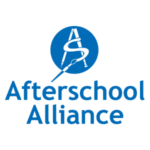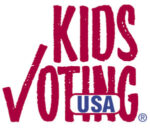Advocacy & Policy
- Advocacy/Policy (35)
- After School Administration (14)
- California Standards (39)
- Child Advocacy (44)
- Common Core (32)
- Education Rights and Reform (21)
- Juvenile Justice and Reform (22)
- National Standards (13)
- Youth Justice and Reform (20)
Election season presents an important opportunity to put afterschool on the radar of policy makers and the public in a visible and meaningful way.
The resources in this toolkit will help you spark conversations about afterschool with candidates for office in your local community or state. Included are talking points, sample materials, and information on how your non-profit organization can participate in the electoral process.
From iCivics Election Headquarters: The best way to strengthen our democracy is to teach it. Presidential elections provide one of the most visible teachable moments for civic education.
By discussing the election, the processes surrounding it, and the role of the people, we have the opportunity to build young people’s confidence in our country.
With free election-focused games and nonpartisan teaching resources specific to high school, middle school, and elementary students, you can help young people understand the power of their voice and vote, learn about state, local, and federal election processes, and become informed and engaged participants.
Kids Voting USA (KVUSA) is a national nonprofit organization working to secure the future of democracy by preparing young people to be educated, engaged voters.
Kids Voting USA Classroom Activities: 9-12 is designed to facilitate secondary school teachers in addressing civic learning objectives, especially those that relate to voting and elections. The resource is comprised of engaging activities that foster group discussion and the use of critical thinking skills.
The goals of Kids Voting USA classroom activities are for students to:





Together in a collaborative partnership, the Human Rights Campaign Foundation and OutVote offer a Campus Organizing Guide to the 2024 Election. This resource provides information and a step-by-step guide for college students to participate in the election as active voters. If a student is not yet registered to vote, the Campus Organizing Guide also provides information on how to do so.
In research posted in April 2024, Afterschool Alliance presents survey findings showcasing 1,116 participating after school providers. These findings suggest that after school programs do support learning recovery post-COVID19, but continue to struggle with staffing and program costs.
While state and federal funding have helped to alleviate the challenges associated with cost, the diminishing funding may impact current staffing (reduction of personnel) and programming (reduction in program offerings), reducing access for at-promise children who need it.
The Annie E. Casey Foundation offers its latest installment to provide information on kinship diversion policies through this analysis report of state-by-state surveys of kinship care policies. Findings are based on 33 state respondents who have policies allowing kinship diversion. The Annie E. Casey Foundation defines kinship diversion as placement of a child with relatives or close family friends as an alternative to a child welfare agency taking custody and placing the child in formal foster care.
Together, Gallup and the Walton Family Foundation (WFF) have partnered to conduct a multiyear study on the American youth experience and to bring light to their perspectives on education, learning, and personal growth. The latest study focuses on how young people consider themselves, their school, and their future possibilities. Data and a downloadable report are available through the Walton Family Foundation and Gallup websites.
Reach Out and Read leverages the pediatric well-child visit and a significant partnership with a clinician network to foster early literacy and healthy relationships among parents, infants, and young children. Reach Out and read annually serves 4.4 million children and families throughout the United States of America.
This resource offers insight into the partnership as well as literary, literacy, and research resources to better advocate for early childhood well-being.
Together for Girls is an international organization spotlighting the importance for youth advocacy and violence prevention against children. Their 2022-2023 impact report spotlights the preventability of violence and importance of change through partnership models.
The Annie E. Casey Foundation has produced its 35th edition of the KIDS COUNT Data Book. The report examines unprecedented declines as a result of the COVID-19 pandemic’s effect on children and education. The 2024 KIDS COUNT Data Book assesses recent trends in child well-being and provides data profiles by state. National data profiles are available in both English and Spanish through their website: aecf.org/resources/2024-kids-count-data-book
The Family Acceptance Project at San Francisco State University offers the LGBTQ Youth & Family Resources page as an additional opportunity for families to access key resources and find support services.
The Family Acceptance Project at San Francisco State University offers research-based intervention, education, and policy initiatives to support families and youth. These initiatives promote well-being and offer preventative measures to the health and mental risks faced by lesbian, gay, bisexual, transgender and queer-identified (LGBTQ) children and youth.
The Family Acceptance Project puts research into practice and offers a myriad of resources to both families and educational providers in order to build greater inclusivity and acceptance.







